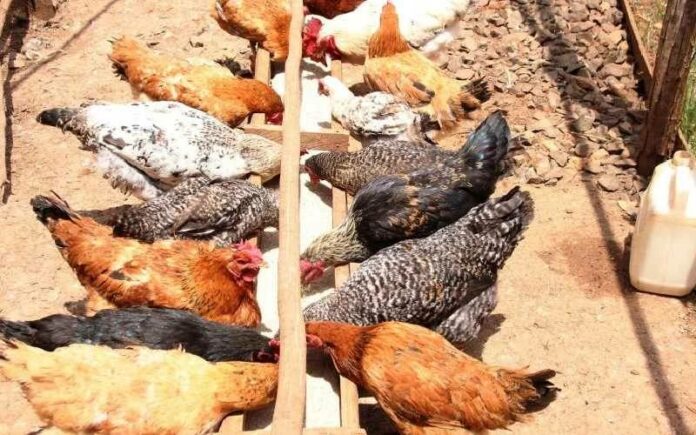Poultry farming is one of the most profitable agribusinesses in Kenya, with farmers who undertake either broiler or layer farming earning big profits from the venture.
Leah Muthoni, the founder of Leamose Poultry Farm in Nyeri is one of the farmers raking a fortune from poultry farming.
Her farm in Kabiruini village near the Nyeri showground and Dedan Kimathi University of Technology hosts over 200 indigenous chickens.
She explains that she started the venture in 2013 with Sh400,000 capital, part of which was used to acquire a hatchery, brooders, a water tank, and water traps.
She also installed electricity and constructed cages before undergoing some training on poultry farming organized by the Ministry of Agriculture.
The farmer crossbreeds indigenous chickens with exotic ones to improve productivity. She crossbreeds the local Kienyeji chicken with the cocks from the Kuroiler, Dorep, and Kenbro chicken breeds, which are known to gain weight faster than the local Kienyeji.
According to her, crossbreed chickens are resistant to diseases and mature faster than the local Kienyeji chicken.
Florence Nyokabi: 9 ways I have built my wealth you can learn from
“The chickens are highly resistant to diseases and have high productivity levels in terms of egg and meat quality,” she says, adding that cleanliness is what keeps her chickens off diseases.
She notes that at maturity, these chickens can weigh up to 4.5kg. Soon after the hen starts laying, the eggs are kept inside a locally-made hatchery for 21 days.
The hatched chicks are then transferred to a different cage where they are fed with chick mash for seven weeks before being moved to an area where they can move freely until they are four to six months old when they are ready for sale.
She vaccinates the chicken after every two to three months against diseases, notably the Newcastle disease.
The chicken feeds on kitchen waste, sunflowers, cereals, fish meal, green grass and maize germ. Leah says she is able to hatch over 200 chicks every month from the different breeds.
She sells her stock per kilo with each going for Sh450, making between Sh80,000 to Sh120,000 monthly. She also earns from eggs from her birds which she sells for between Sh30 to Sh35.
According to her, eggs from Kenbro, the Dorep indigenous chickens, and the cross-bred indigenous chickens are always in high demand, hence the high market price, unlike the local Kienyeji eggs, which go for between Sh20 and Sh25.
She sells her chickens and eggs locally to hotels and supermarkets in Nyeri town.









